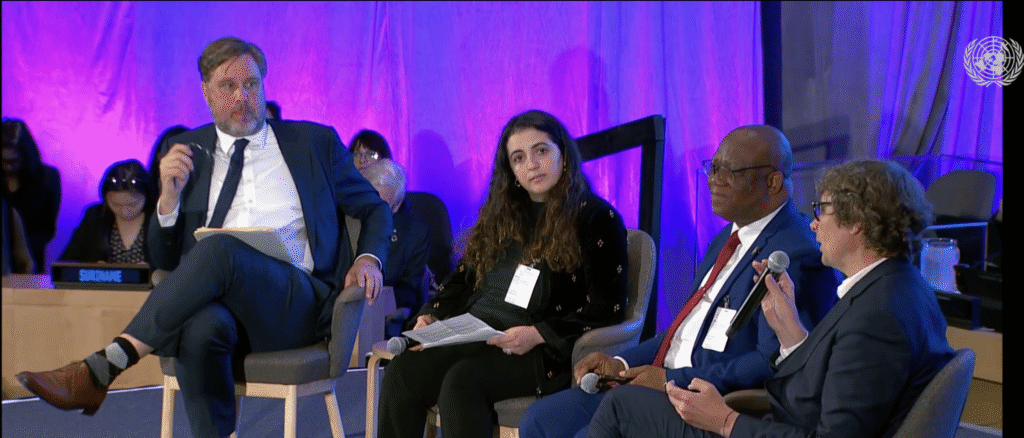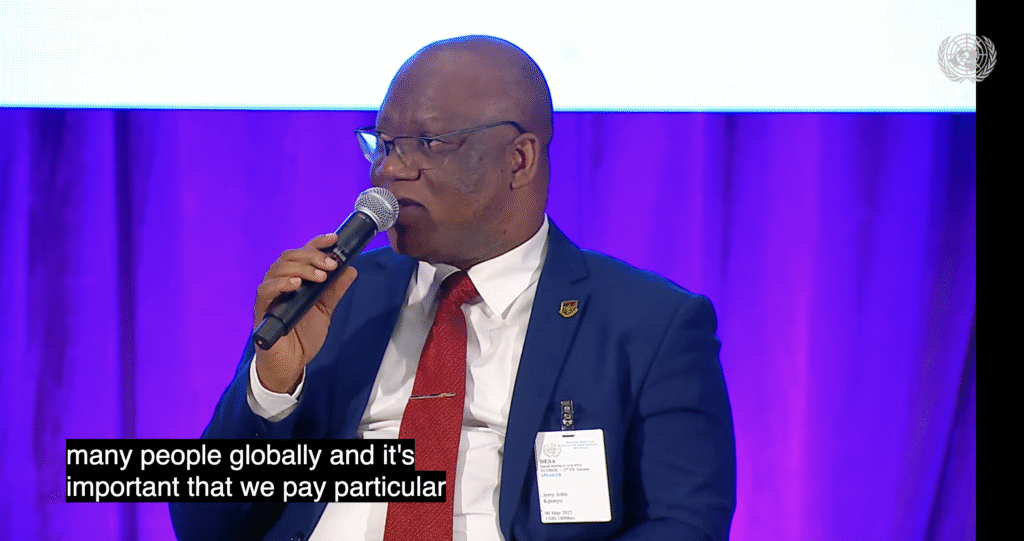Prof. Jerry John Kponyo, Principal Investigator and Scientific Director of the Responsible AI Lab (RAIL), contributed to the interactive discussion at the United Nations Economic and Social Council (ECOSOC) Special Meeting on Artificial Intelligence (AI).
The event held at the UN Headquarters in New York convened Member States, UN system experts, global leaders, policymakers, private sector leaders, innovators, and civil society stakeholders to explore AI’s role in advancing sustainable development with a focus on equitable growth in the Global South.

The panel discussion on building foundations for AI in the Global South addressed strategic investments, partnerships and governance needed to bridge digital divides while mitigating risks. Prof. Kponyo emphasised that AI must be accessible, inclusive, and aligned with local needs to truly support the Sustainable Development Goals (SDGs).

Answering the question of what the most critical elements are for building the foundations for AI in the Global South, Prof. Kponyo stated the key enablers of AI, which are ensuring good and quality infrastructure, the availability of data and computing, and the development of the talent of end users. He said these enablers must be tied into an AI strategy and implemented with an AI fund.
On ensuring that AI is developed in Africa and for Africans, Prof Kponyo said responsible AI should be people-centred AI and should add value to societies.“AI solutions should be relevant to the end users and communities for which they are developed.”
He said we must be responsible in curating and managing datasets, and be conscious of the cost of AI solutions, so as not to create a class system in AI solutions. He added that Persons with Disability (PWDs) should not be sidelined but involved in creating AI solutions. He mentioned that RAIL KNUST has worked with other AI4D Labs in Africa to develop FACETS, a framework for quantitatively measuring responsible AI.